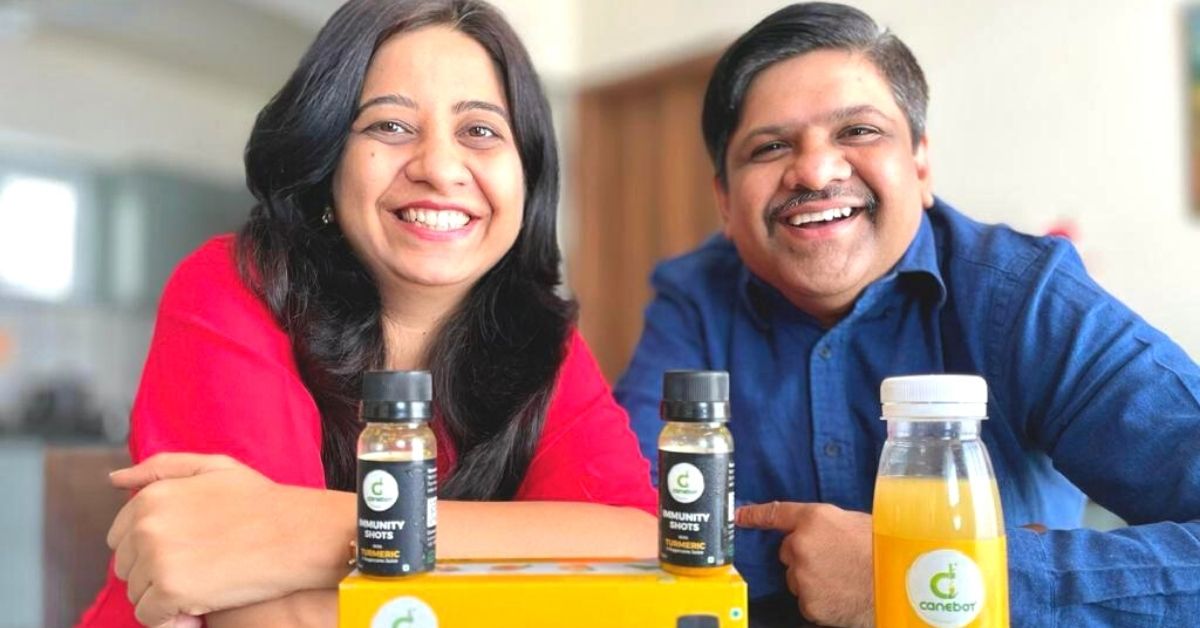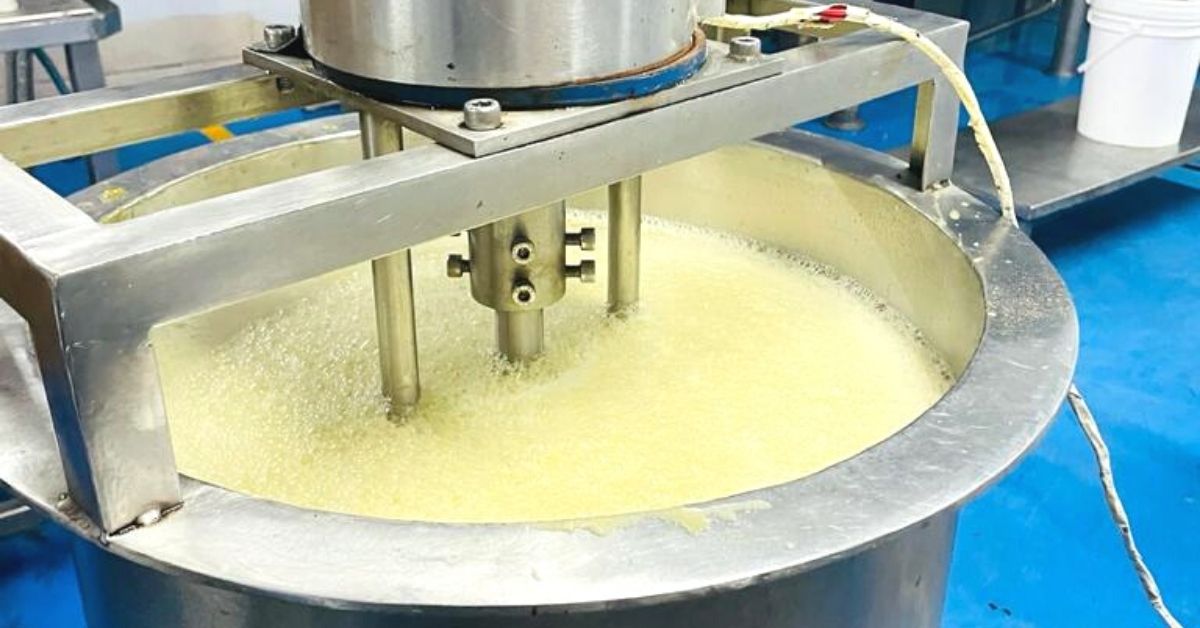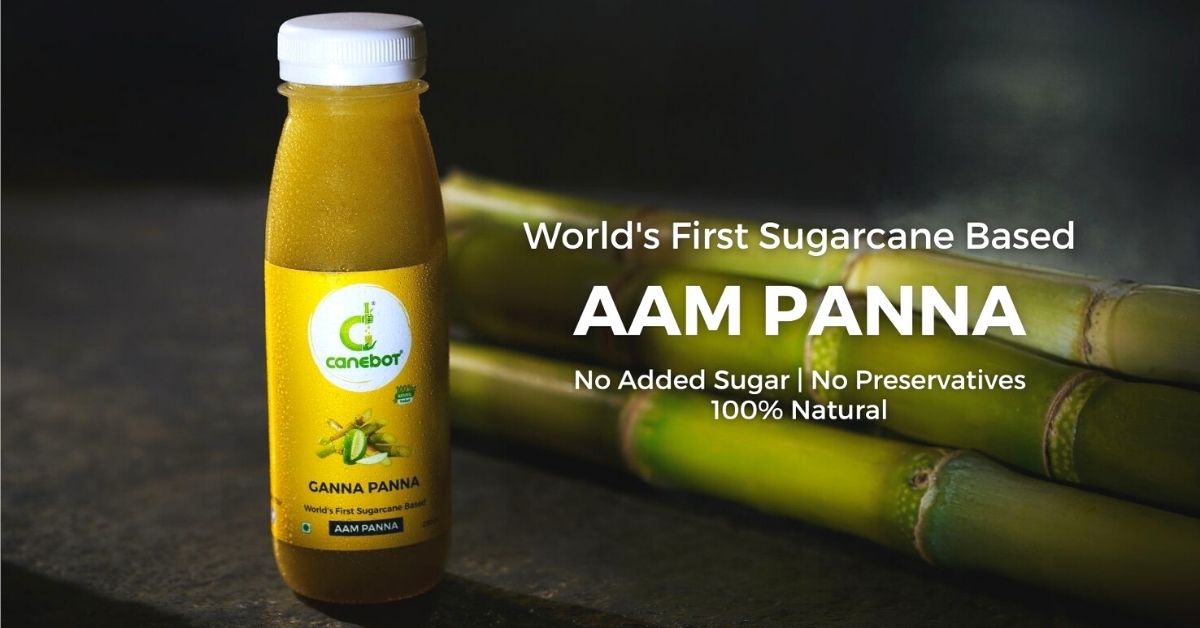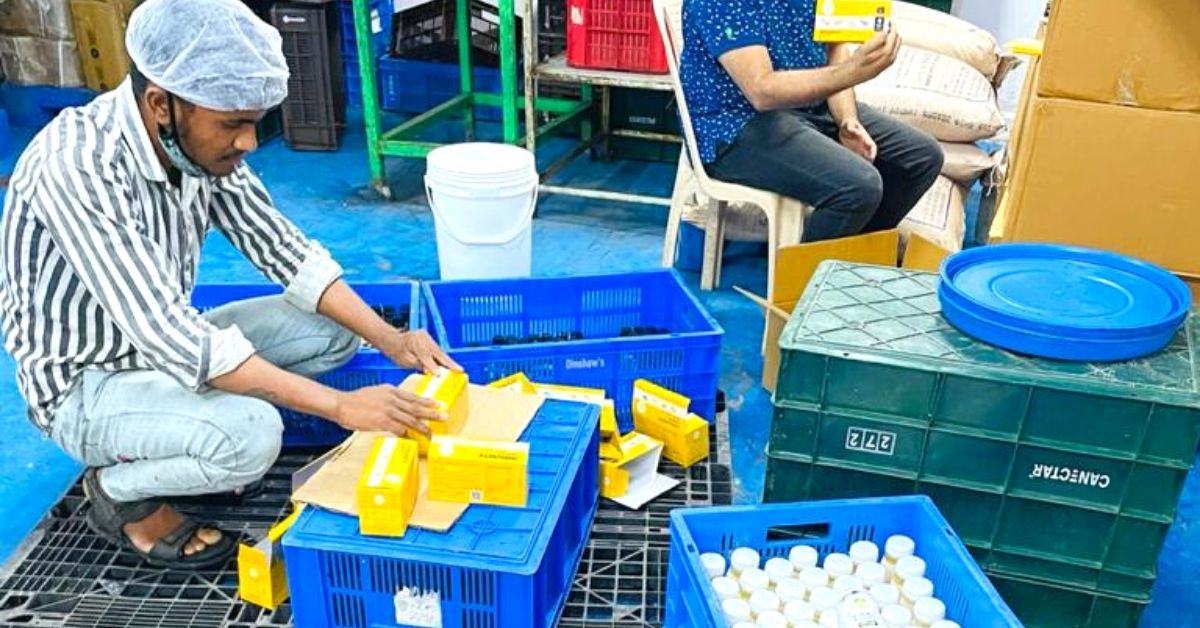Techie Couple Quit Job to Build Preservative-Free Sugarcane Juice Empire; Earn Lakhs
Milind and Kirty Datar, from Maharashtra, worked in the IT sector for 13 years before taking the startup plunge. They decided to sell sugarcane juice across Pune and Mumbai

For 13 years, since 1997 to be precise, Milind and Kirty Dartar, a Pune-based couple, worked in the IT sector. In the massive IT parks they worked in, frequenting cafeterias during break time was a common practice for them, as well as the other employees.
These cafeterias hosted a vast range of food and beverage kiosks. But for Milind, regular visits to these places left him with an itchy feeling when his eyes wandered to the branded fancy coffee shops. In comparison, he noticed how modest juice counters failed to gain similar traction, or even the same dignity and respect.
He also observed that desi drinks such as sugarcane juice struggled with the same issues. Milind says the sugarcane juice business was perceived as seasonal, unorganised, and unhygienic. Not many preferred risking their health to opt for the local, natural and fresh drink. The thought opened an opportunity that changed the course of his professional life.
The 46-year-old says the idea first came to him in 2010, after which he started discussing it with his wife. A few years later, the couple quit their jobs to launch a sugarcane juice startup, Canebot.
Juicing sweet success

Speaking about their journey, Milind says, “Many employees avoided accessing these counters due to ‘hygiene levels’. I wondered if something could be done to promote this natural and healthy drink,” he tells The Better India.
While both he and Kirty agreed to enter the business, they did not have the experience and knowledge they needed to do so. “We conducted thorough research about the market, the issues, and possible solutions to overcome them. The research highlighted hygiene as the main concern for not choosing the drink. Another aspect was the traditional sugarcane crushing machines, which are made mainly with iron and are unprotected from dust and other pollutants,” he explains.
To overcome these issues, they decided to design a new crush machine altogether. Milind says the couple spent a lot of time researching, innovating and producing a sugarcane machine that had multiple benefits. “The newly conceived machine had better crushing capacity. The sugarcane did not have to be crushed repeatedly to extract the juice. A single crush ensured 95% extraction. Moreover, the machine was small, easily movable, and had a cover,” he adds.
Milind says that covering the machine ensured the juice did not spill, or was not exposed to outside pollutants. It also reduced the noise produced during crushing. The crushing unit was built from food-grade stainless steel, unlike the iron or other materials used conventionally. “It guaranteed the safety of the food and reduced the chances of contamination. The overall machine structure functioned in a manner that did not require water to maintain hygiene,” he adds.
Moreover, the Internet of Things (IoT) in the machine could calculate the amount of sugarcane juice extracted per day. It made monitoring operations accessible through internet connectivity. They also innovated the machine to skin the sugarcane before crushing.
“A conventional process demands manually skinning the peels of sugarcane. It required 20 labourers working eight hours a day to peel 1,500 kilos of sugarcane. However, our machine helped skin 1,000 kilos of sugarcane in one hour with two persons operating it. It reduced the production cost drastically,” he says.
The couple identified farmers in Maharashtra who could assure consistent quality, quantity and supply of the farm produce through the year. After preparing the ground, they quit their jobs in 2012 and, later that year, launched the proprietary firm Canectar Foods Pvt Ltd in October, targeting IT companies.
Over time, they opened 12 outlets across various companies to sell about 45,000 glasses of juice a month, earning around Rs 2 crore per year. “It was well-received, as the juice had a consistent taste and high quality maintained through the year. We were very specific to choose a variety of sugarcane and stuck to it,” he says.
Back to square one

However, as the startup decided to scale up, the COVID-19 pandemic struck, and all plans came to a standstill.
“All our outlets were located in IT companies. The pandemic forced us to shut down our operations overnight. We faced an unexpected crisis,” Kirty recalls.
The 43-year-old says the company always focussed on serving fresh juice at the outlets. “Sugarcane juice has a high perishable value, and it spoils within hours. Before the lockdown, we experimented with canned sugarcane juice as alternatives for a couple of years, but the product failed. We were adamant and refrained from the use of preservatives or other added sugars or chemicals to increase its shelf life,” she adds.
“We thought of returning to IT work consultation. But we had come too far and decided to put more efforts into our business. Since bottling the sugarcane juice was not feasible without adding preservatives, we needed another natural agent to protect it. Some research led us to realise that raw mango juice, panna, if blended with sugarcane juice, can serve the purpose,” she adds.
“The raw mango juice is a summer cooler famous across cultures in India. It is equally healthy and has natural nutrients. However, many Indians avoid consuming it as it requires loads of sugar during the making. Hence, through value addition, the blend would provide natural sweetness from sugarcane juice and would retain the tangy taste of mango,” Kirty says.
New beginnings
In August 2020, the startup came back in business with an energy drink, Ganna Panna, offering bottled sugarcane and raw mango juice free from preservatives. “We also launched an immunity shot product containing turmeric, sugarcane juice, black pepper and other elements that support building a stronger immune system. Since we could not sell it in outlets due to the pandemic and logistical challenges, we moved to e-commerce platforms such as Big Basket. The 230 ml Ganna Panna bottle is offered at Rs 70. A ten unit box of immunity shots measuring 30 ml each costs Rs 400,” she says, adding that the immunity drink has been recommended by Ruby Hospital in Pune, as well as nutritionists. Both are sold under the brand name Canebot.
Avanti Deshpande, a nutritionist and nutrigenomics counsellor, says, “I recommend the drink to clients with a diet plan as it contains turmeric, known for its immunity-boosting properties. The black pepper helps absorb the turmeric better and is especially preferred by people not fond of consuming turmeric milk or other alternatives.”

In the recent quarter, the business has picked up, increasing 25-30% each month and earning Kirty and Milind around Rs 7 lakh a month. “We are now selling the products in Pune and Mumbai markets. The success in bottling has helped to reach markets outside Pune,” she adds.
Kirty says that besides COVID-19 and other research challenges, they struggled with creating a market around the product. “There were no players, and establishing a brand was difficult. Sugarcane is heavy in terms of weight, and establishing a robust supply chain was hard. It took us over eight years to continue research and innovations in building a better business model,” she says.
She adds that the company operated without loans, fundings or other external financial support. “We used our life savings and invested all the money in the beginning. Over the years, we invested Rs 1 crore from the business and continue to remain bootstrapped,” Kirty says.
The venture is incubated with IIM-Bangalore, NSRCEL and Atal Innovation Mission under the ‘AIM Catalysts’, a government programme that supports early-stage and sustainable startups.
Milind says the company is working to establish juice dispensing counters to increase the outreach. “We plan to have machines similar to ATMs that could help customers access the juice. Such dispensing units could be in demand at airports, hospitals and other public places. However, the primary focus remains to regain the market and increase customer reach through e-commerce platforms,” he says, adding, “I want sugarcane juice to become as famous as coffee.”
Canectar’s sugarcane juice and immunity shots can be ordered at their website.
Edited by Divya Sethu
This story made me
-
97
-
121
-
89
-
167
Tell Us More
We bring stories straight from the heart of India, to inspire millions and create a wave of impact. Our positive movement is growing bigger everyday, and we would love for you to join it.
Please contribute whatever you can, every little penny helps our team in bringing you more stories that support dreams and spread hope.



















